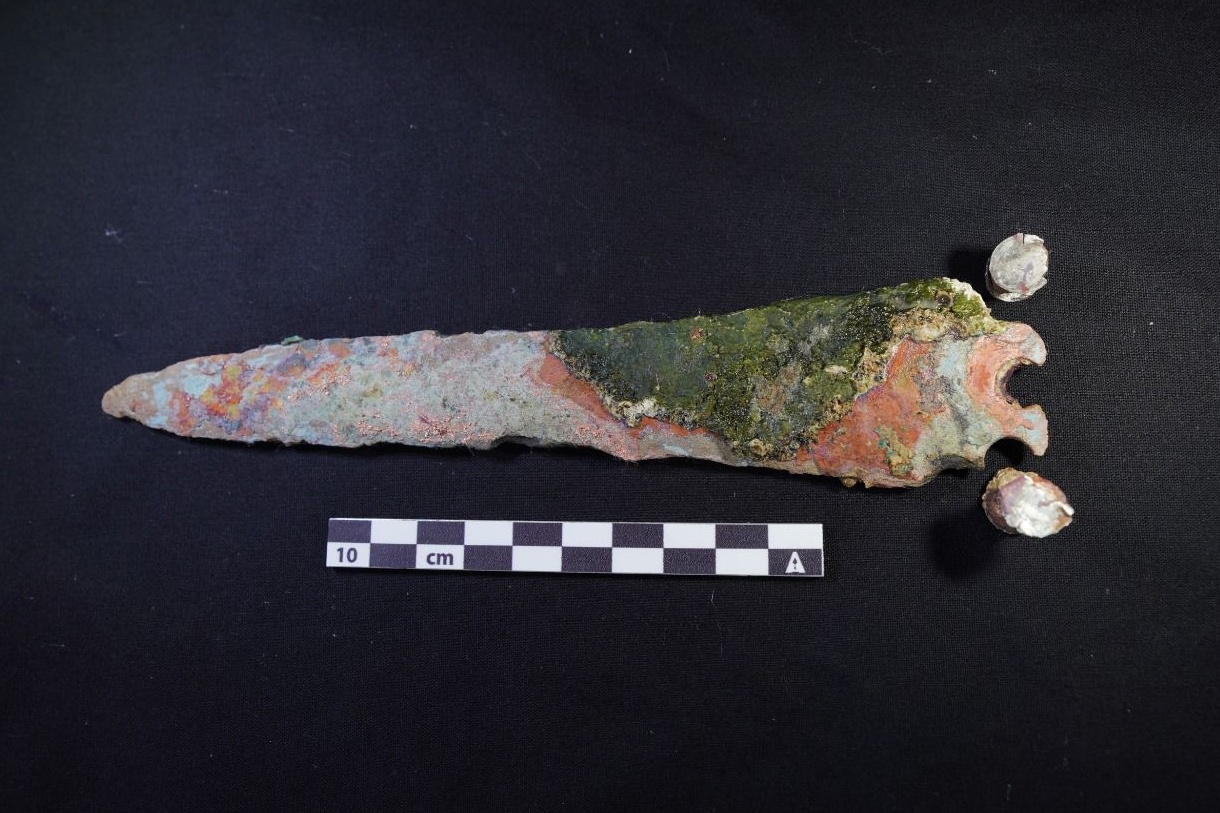An ancient bronze dagger, linked to a long-lost civilization, has emerged from the depths of the Mediterranean Sea near Turkey.
Dating back approximately 3,600 years, this dagger, adorned with silver rivets, was discovered during underwater excavations led by Akdeniz University in Antalya Province.
These excavations were conducted off the coast of Kumluca district, as shared by Turkey’s Culture and Tourism Minister, Mehmet Nuri Ersoy, on social media.
“A 3,600-year-old secret from the Mediterranean has come to light,” Ersoy posted on Facebook, expressing gratitude to the Akdeniz University team and the Department of Excavations and Research for their diligent work uncovering the remnants of ancient civilizations.

This dagger is believed to belong to the Minoan civilization, which thrived on the island of Crete from around 3000 B.C. to 1100 B.C. Known for its rich cultural and artistic achievements, the Minoan civilization peaked around 1600 B.C. with remarkable cities, architectural brilliance, intricate artwork, and extensive trade networks across the Mediterranean.
The Minoans significantly influenced the ancient Mycenaean culture, which emerged later on mainland Greece and eventually overtook Crete.
The 3,600-year-old secret has surfaced from the depths of the Mediterranean. 🗡️ Excavations off the coast of Antalya’s Kumluca district…
The Mycenaean civilization (1700-1100 B.C.) is recognized as one of the first advanced societies on the Greek mainland. Among their significant contributions was the development of a syllabic script, the earliest known form of written Greek, centered around the ancient city of Mycenae in the northeastern Peloponnese.
Earlier this year, experts in southern Norway uncovered a Bronze Age ax, estimated to date between 1300-1100 B.C., making it the oldest metal artifact found underwater in Norway, according to the Norwegian Maritime Museum.
